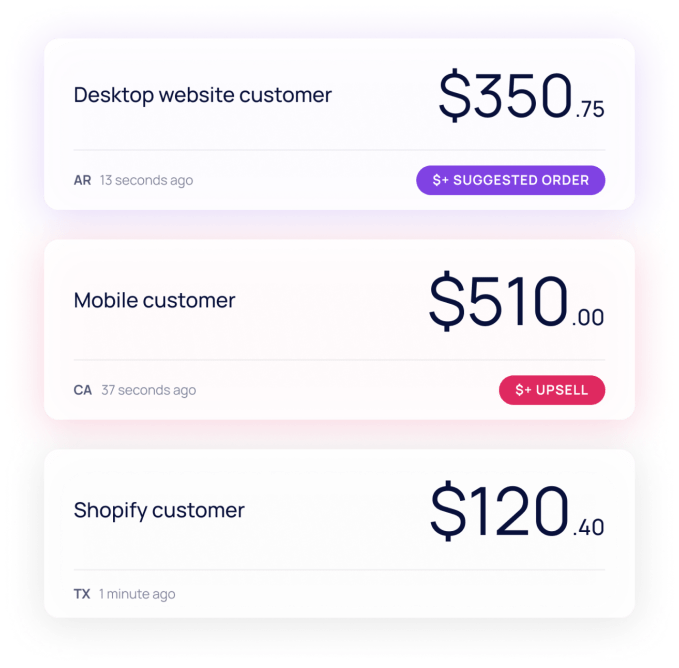Category: TECHNOLOGY
Identity verification company Youverify extends seed funding to $2.5M as it expands across Africa
This past month has seen several African fintechs such as Flutterwave and Union54 make headlines for compliance checks and fraud issues. Both unlinked events re-emphasize the importance of know your customer (KYC) and anti-money laundering (AML) checks and why regulators enforce strict policies that financial institutions need to be held accountable to while operating across the continent and globally.
For the many startups whose services help keep the operations of financial institutions such as banks and fintechs in check, this period highlights their relevance more than ever. In the latest development, Youverify, a Lagos and San Francisco–based identity verification company helping African banks and startups automate KYC and other compliance procedures, is announcing that it has secured a $1 million seed round extension. The startup raised a $1.5 million round in 2020, bringing its total seed raise to $2.5 million.
Africa-focused VCs Orange Ventures and LoftyInc Capital, the two investors who co-led its initial seed round, also led the extension. Additional investment came from Octerra Capital, Plug & Play Venture, Syntax Ventures, HTTP Investors, Afer Group and Fronesyz Capital.
The proliferation of financial services in Africa is beginning to attract more scrutiny from regulators. According to reports, transactions worth $116 billion will be made through digital payment channels this year, requiring stringent measures to prevent identity theft and fraud. Therefore, the rise in focus on maintaining transparency in financial regulations and improving strategies for KYC and AML by implementing regulatory technologies has become a significant growth factor for the market. And as regtech demand globally increases, so will Africa’s, with reports saying it will reach about $1.2 billion in the next five years.
Youverify came into Africa’s regtech scene when founder and CEO Gbenga Odegbami founded the company in 2018. Launched in the Nigerian market, Youverify first provided API for address and identity verification to several financial institutions. Now it has added more KYC products and expanded into new markets such as Ghana, Côte d’Ivoire, South Africa, Kenya and Uganda.
“The way our customers see us is that we help them automate their KYC and compliance issues,” said Odegbami on a call with TechCrunch.
In addition to verifying identities beyond Nigeria’s bank verification number (BVN) and addresses, Odegbami says Youverify layers KYC and compliance products such as transaction monitoring. He further explained that these offerings cater to issues some fintech platforms have faced recently: alleged AML issues in the case of Flutterwave in Kenya and Ping Express in the U.S. and fraud in the case of Union54’s chargebacks. In the latter, Youverify claims it could’ve prevented large-scale chargeback fraud by identifying the pattern of transactions to flag fraud, blocking the virtual cards and tying them back to fraudsters committing the multiple fake chargebacks.
“They [Union54] grew faster than they could put in place the proper transaction monitoring and fraud detection systems that will identify transactions happening from their customers,” the CEO said of the …read more
Amazon launches AWS ‘skill builder’ training subscriptions starting at $29 per month
Skilling up
It’s worth noting that each of the so-called “big three” cloud companies have introduced all manner of training courses through the years as they try to sway developers and companies over to their respective ecosystems. For the most part,
Amazon’s AWS is introducing premium paid subscriptions for individuals and teams looking to bolster their cloud computing skills.
Amazon announced a bunch of free cloud skills training products last November, one of which was AWS skill builder, an online learning center featuring hundreds of free cloud computing courses. With AWS skill builder subscriptions, the tech giant is now looking to monetize the offering through monthly subscriptions that usher in a bunch of extra features and services on top of the basic free training plan.
Individual subscriptions are priced at $29 per month or $299 for the year, and they offer three practice exams for those looking to pass an official AWS Certification program, which the company has offered for the past decade. On top of that, subscribers are offered tools such as “builder labs,” which are basically practical guided exercises spanning some of the more common cloud situations — users are given a sandboxed AWS account for the exercise.
Team subscriptions, meanwhile, weigh in at $449 per learner each year, though high-volume discounts are available. This plan includes a bunch of enterprise-focused features such as the ability to assign training exercises, progress reports, and integration with a company’s single sign-on (SSO) provider.
AWS Skill Builder Subscriptions
Skilling up
It’s worth noting that each of the so-called “big three” cloud companies have introduced all manner of training courses through the years as they try to sway developers and companies over to their respective ecosystems. For the most part, they’ve largely been free (though there are many premium courses available through third-party partnerships), but we are starting to see a push toward cloud companies charging their existing customers for skilling up, which is what Amazon’s latest program is all about. By charging a recurring fee, this may encourage users to place a greater value on the courses, and ensure that they keep up with their learning — while simultaneously giving AWS a small revenue boost.
Last year Google introduced Google Cloud Skills Boost with the goal of training 40 million people how to use various facets of its cloud platform. This was powered by its 2016 acquisition of Qwiklabs, and similar to Amazon’s new effort, it charges $29 or $299 depending on whether the user wants to commit to a monthly or annual subscription. There is also a team subscription option that’s apparently available upon request.
If nothing else, all this helps to highlight how pivotal the cloud has become in the fortunes of Big Tech. Despite the global economic climate and a $2 billion loss, Amazon last week reported continued strong cloud growth, with AWS revenues jumping 33% year-on-year to $19.74 billion in Q2.
But while cloud spending is clearly going up, IT skills gap aren’t necessarily keeping apace, and addressing this disparity is something that Amazon hopes its customers will be willing to pay for.
Sheryl Sandberg officially stepped down as Meta COO on August 1, filing shows
We knew it was happening, but Meta has confirmed that its long-standing chief operating officer (COO) Sheryl Sandberg has departed from her role as of yesterday (August 1).
News emerged on June 1 that Sandberg would be stepping down after more than 14 years in position and would be replaced by chief growth officer Javier Olivan, though no specific date was given. But in a SEC filing yesterday, Meta revealed the transition is now complete. Moving forward, Sandberg will remain a Meta employee through September 30, 2022, after which she will continue purely as a board member.
Meta struggles
The switch comes at a turgid time for Meta, having just reported its first ever quarterly revenue decline, while the FTC also confirmed that it was suing Meta to block its acquisition of VR fitness studio Within. On top of that, Meta just can’t seem to shake off the Cambridge Analytica data scandal, an episode that involved a U.K. political consulting firm siphoning Facebook data as a means to predict and influence voters’ behavior through targeted ads. After nearly four years of legal wrangles, a class-action lawsuit moved a step closer last month when it was confirmed that cofounder and CEO Mark Zuckerberg and Sandberg would both be deposed, in an upcoming hearing that could see both executives testify for up to 11 hours in total. Court documents also revealed that new COO Olivan will testify for up to 3 hours.
Sandberg’s departure represents part of a broader restructuring at Meta, with chief financial officer (CFO) David Wehner scheduled to step into the role of chief strategy officer (CSO) on November 1, a move that some may interpret as intended to give investors’ confidence that it’s making moves to steady ye olde Meta ship. Elsewhere, current VP of finance, Susan Li, will step into the CFO role.
Sandberg’s departure represents a milestone moment in the Meta / Facebook story, given how instrumental she was in the company’s evolution into the major moneymaking machine it is today. In a post back in June, Zuckerberg noted that Olivan wouldn’t be a direct replacement for Sandberg in terms of the role he will play, even if the job title will remain the same — Olivan will head up Meta’s ads and business products, and oversee the teams focused on “infrastructure, integrity, analytics, marketing, corporate development and growth,” he wrote.
“Looking forward, I don’t plan to replace Sheryl’s role in our existing structure,” Zuckerberg noted. “I’m not sure that would be possible since she’s a superstar who defined the COO role in her own unique way. But even if it were possible, I think Meta has reached the point where it makes sense for our product and business groups to be more closely integrated, rather than having all the business and operations functions organized separately from our products.”
Arena raises money from Peter Thiel and David Petraeus for its decision-making AI
Can AI automate enterprise decision-making? It’s an exceptionally broad and challenging task — assuming it’s within the realm of possibility. But that’s what startup Arena claims to do, fueled by a round of funding ($32 million) led by Initialized Capital and Goldcrest Capital along with Founders Fund, Flexport and a colorful cast of characters, including retired general David Petraeus, Peter Thiel, and Y Combinator CEO Michael Seibel.
New York–based Arena is the brainchild of Pratap Ranade and Engin Ural, who co-founded the company in 2020. The two were inspired to build a platform that could, leveraging predictive algorithms, help businesses formulate strategies to navigate “uncertain” environments — like a global pandemic.
Ranade, who attended Stanford and Columbia, was previously an associate partner at McKinsey and co-founded web-scraping startup Kimono Labs, which was acquired by Palantir in 2016. Ural was an app developer at Goldman Sachs before joining Palantir as an engineer, where he met Ranade.
Arena’s services are wrapped up in a lot of hyperbolic language, but they’re relatively straightforward in execution. One of the startup’s tools uses AI techniques to simulate an economy, testing out millions of product pricing configurations to arrive at an optimal model for a company. It brings to mind the AI Economist, a Salesforce-developed research environment that similarly runs millions of simulations to come up with plausible fiscal policy.
Beyond pricing, Arena can ostensibly simulate things like inventory management. Ranade also claims it can account for “deviations” in the economic environment, like headwinds stemming from snarled supply chains, in making recommendations to customers (i.e., execs).
Image Credits: Arena
“Without Arena, enterprises traditionally approach such decisions in a few ways: Hiring large teams of people to make these decisions, buying decision assistance software to help people in operational roles make data-driven decisions, or do nothing and continue pushing through with traditional processes,” Ranade told TechCrunch via email. “Each of these approaches has merit, but they are a far cry from the full promise of AI: truly intelligent machines that operate autonomously, on our behalf, to elevate human potential.”
Arena clients feed the platform data like SKU-level sales, pricing, inventory at the location level and shopper behavior during e-commerce sales. Arena augments that data with context from what Ranade calls the “demand graph,” which provides broader, real-time market signals. Together, these inputs are used to create the aforementioned simulations, which in turn produce models for pricing, inventory and marketing that are then fine-tuned world data.
“Today, when the most sophisticated, data-centric business-to-business companies run a promotion, data scientists analyze past data to determine the best type of promotion to run for a specific product in a specific market. They then load the promotion into their enterprise resource planning system, and weeks after, will analyze its performance,” Ranade said. “With Arena, this entire process is autonomous … Under the hood, Arena’s AI actively adapts to changing price elasticity and personalizes to customer behavior, making adjustments as it learns in real-time to drive bottom …read more
A16z-backed Shein challenger Cider is growing rapidly
Shein has shown the world how combining social media marketing, data analytics, and China’s well-oiled supply chain has created a $100 billion fast fashion behemoth.
Its success naturally spawns imitators and challengers. Among its fastest-growing challengers is Cider, which, like Shein, relies on China’s responsive clothing manufacturers to sell affordable, trend-led pieces to customers around the world.
Cider has racked up roughly 7.4 million installs across the world to date, according to data provided by market intelligence firm Sensor Tower. That number is dwarfed by Shein, which gained over 170 million downloads worldwide in 2021 and surpassed Amazon as the top shopping app in the U.S. last year.
But keep in mind Cider was only founded in 2020 while Shein started out over a decade ago. And Cider has broken into the crowded U.S. market, which accounts for 43% of its total downloads. In the first half of 2022, it recorded 2 million downloads in the U.S., marking a staggering 1,686% year-over-year growth.
Cider’s other major markets are the U.K., Germany, France, Canada, and South Korea, Sensor Tower finds. It currently ranks among the top 10 shopping apps in the App Stores of France and South Korea, app analytics firm Data.ai shows.
Cider’s App Store rankings over the past 90 days. Data: Data.ai
Shein has grown to be too big to be easily toppled, so startups like Cider are targeting the giant’s untapped niches instead. A browse around Shein today shows the company is increasingly coming after Amazon and is unbounded by its origin in fashion. From pet toys to air purifiers, Shein keeps on widening its product offerings.
Cider, in comparison, is more focused. It clearly wants to be the go-to shop for Gen Z consumers with its array of Y2K looks of crop tops and vibrantly colored tees.
The startup’s traction is by no means a shock given the list of resourceful investors that it has attracted: a16z, of which partner Connie Chan personally explained how Cider’s demand-driven marketplace works; DST Global, ByteDance’s early investor; IDG Capital, one of China’s most prominent VC firms; and MSA Capital, which bets on global startups inspired by China’s tech business models.
As of last September, Cider had raised $130 million in funding and crossed the $1 billion valuation point.
The company is vague about its physical base, saying only it “has offices in Los Angeles” and employs between 200-500 employees, according to its website. It won’t be surprising if the firm announces one day that its headquarters is outside China. Over the past few months, Shein, which has for years clung to the narrative that its inception was inspired by its founder’s trip to LA, has been shifting its key assets to Singapore.
As China tightens control over how tech firms move data across borders and Chinese firms become increasingly ensnarled in geopolitical complications, Chinese-founded startups will look to position themselves as “global” companies, …read more
https://techcrunch.com/2022/08/02/shein-a16z-challenger-cider-growth/
Locket, the popular app that lets you post photos to your loved ones’ homescreens, raises $12.5M
Moss says Locket plans to launch new features in the coming months that will stick to the core idea of sharing little moments of your day with your favorite people. Among the new features will be new ways to respond to photos. Overall, Moss says the new features will be focused on making users’ homescreens feel more dynamic and personal. The company is also in the early days of launching a subscription model, but is currently focused on building out new features for the time being.
The company’s $12.5 million investment consists of two funding rounds. The company raised $2.5 million when Locket was first gearing up to launch in January 2022 after conducting a small round consisting of friends and close contacts. Locket then raised $10 million in seed funding in late April in a round led by OpenAI CEO Sam Altman. The round included participation from existing investors Sugar Capital and Costanoa Ventures, along with Instagram co-founder Mike Krieger and Quora CEO Adam D’Angelo.
When asked if Locket plans to add filters or effects to its camera, Moss said he doesn’t have any immediate plans to do so. He believes that it’s important for people to feel free to capture their true selves and that the best way to do that is with a simple camera experience.
He also believes Locket can help make phones feel more personal to users by ensuring that their favorite people are at the center and focus of their devices.
“I think phones have felt pretty impersonal for a long time now, as everyone opens up their phone to the same kinds of generic apps. I think we have an opportunity to flip that so the phone feels like a place where your favorite people are at the center. That’s the long-term vision that’s guiding us, particularly at a time when a lot of social media is shying away from content from your friends and keeping up with people you really care about. But, there’s always going to be a natural need for people to feel closer with their favorite people.”
Moss’s comments about social media platforms shying away from content from friends comes at a time when
Locket, a popular app for sharing photos straight to your family and friends’ homescreens, has raised $12.5 million in funding. The app rose to the top of the App Store charts after launching on New Year’s Day this year and has since amassed more than 20 million downloads. Locket’s simple premise of putting photos from your friends and family onto your homescreen embodies a private social networking platform that aims to make you feel closer to your loved ones. Since its launch, Locket has seen over 1 billion photos shared.
The app was founded by Matt Moss, a former Apple Worldwide Developer Conference student scholarship winner and recent UC Santa Barbara grad. Moss initially created Locket as a personal side project for his girlfriend as a way to capture and share a genuine moment of his day with her. Moss’s friends had asked if they could use the app with their own friends and family, after which Moss made Locket publicly available on the Apple App Store and on the Google Play Store shortly after.
Moss told TechCrunch in an interview that he believes traditional social media platforms are designed to share content with hundreds of your closest friends and can also introduce challenges, such as being overly focused on like counts or continuously scrolling through endless feeds. Locket, on the other hand, is designed to make people feel closer to the 10-15 people in their lives that matter the most, while providing a simple release from doomscrolling and algorithmic feeds. The widget allows you to add up to 20 people to your homescreen, and Moss says this number is the natural limit for Locket’s core premise of focusing on your closest connections.
As for the new funding, Moss says Locket plans to use the money to hire more people and roll out new features while staying true to its core premise of helping users feel closer to their significant others, best friends and family.
“It’s been exciting to see the product resonate with people, but going forward, we have an even bigger opportunity to become the best way for people to stay in contact with those 10 to 15 people that matter the most,” Moss said. “The main impetus behind the funding is really just to accelerate; it’s just going to let us hire more people and continue to ship new features and become the product that is the best way to stay in contact with your close friends and family.”
Image Credits: Locket
Moss says Locket plans to launch new features in the coming months that will stick to the core idea of sharing little moments of your day with your favorite people. Among the new features will be new ways to respond to photos. Overall, Moss says the new features will be focused on making users’ homescreens feel more dynamic and personal. The company is also in the early …read more
Emitrr raises $4 million to expand its automation offering for local businesses
Large-scale and mid-sized enterprises and businesses are increasingly adopting — and offering — software-as-a-service platforms as they seek to increase their revenue and parlay their growth into greater efficiency. Now a young startup, Emitrr, is aiming to bring the benefits of this model to small and local businesses in the U.S. Emitrr claims to help small businesses by automating tasks such as appointment reminders and review generations. On Tuesday, the startup, led by two Indian co-founders, announced that it raised $4 million in a Pre-Series A round to widen its automation solution in the U.S. market.
Bengaluru-headquartered Chiratae Ventures led Emitrr’s funding round, which also drew participation from Venture Highway, FortyTwo VC and Axilor Ventures.
“We essentially are a business text messaging software and an automation software for local businesses in the U.S.,” said Anmol Oberoi, founder of Emitrr, in an interview with TechCrunch.
Emitrr, founded by Oberoi and his partner Pulkit Gambhir in December 2020, claims that that over 150 local businesses in the U.S. use its platform. These businesses range from single-location healthcare practices to multi-location home service companies. The startup also has some small business clients in Australia and Canada.
Anmol Oberoi (left) and Pulkit Gambhir (right)
The Delaware-based startup is catering to the global markets and has no customers in India, but it employs a team of 25 people — most of whom work remotely from tier-two and tier-three cities — in the South Asian market.
Emitrr works with over a thousand of vertical CRM platforms that local companies often use to solve customer management operations. Oberoi said that Emitrr has so far built seven to eight different automation models that work over the short messaging service (SMS).
Local healthcare centers, dentists and home service providers can use these automation models to send their customers appointment reminders and follow-ups on services for feedback and reviews. Oberoi told TechCrunch that while Emitrr is targeting healthcare and home services heavily, it has started getting customers from real estate, salons, restaurants and other different verticals.
It’s remarkable that Emitrr is using traditional text messages over WhatsApp for its tasks. Oberoi said that people in many markets including the U.S., Australia and Canada still prefer to use SMSs over any third-party offerings, but added that it’s within reach for the startup to quickly adopt WhatsApp or any other instant messaging service onto the platform.

Emitrr brings automation to business communication
“Our platform can be used by any local business in the world,” he said. “We automate the tasks performed by receptionists that sit in the dental office and the front desk executive that sits in the restaurant.”
Since Emitrr sends and receives messages to customers directly from businesses, it often processes sensitive information. Oberoi said that there is system-wide encryption to ensure the security and safety of data the platform processes.
“Both our inbound and outbound text messages are completely …read more
MarqVision grabs $20M to nab counterfeiters with an AI-powered IP protection platform
As of 2020, the clothing sector lost about $27 billion in annual sales due to counterfeits, an illicit trade that results in huge losses to both brands and buyers. Clothes, accessories and luxury goods are the most popular product items for counterfeiting, according to the 2022 intellectual property crime threat assessment report. But that’s not where the problem starts and ends: the explosion of digital content has also led to a wide number of digital counterfeiters as well.
Image Credits: MarqVision (opens in a new window) under a license.
MarqVision has built an AI-powered intellectual property (IP) protection platform that monitors both e-commerce marketplaces and digital content, automatically detecting counterfeits and removing them from online sales and distribution. And now, the startup has raised $20 million in Series A funding to continue expanding its platform.
The company, based in Los Angeles and originally incubated at Y Combinator, says its customers — which include fashion labels like Ralph Lauren and Kangol, LVMH, crystal icon Baccarat, as well as media behemoth Pokemon — use MarqVision to scan places where their brands are most likely to be misappropriated.
These include the top 1,500 online marketplaces globally, as well as popular social media platforms that are becoming increasingly used for commerce, NFT platforms, gaming sites and other places where counterfeit products might appear. It says that its tech is already leading to more than 20,000 enforcements weekly. Its founding team has roots in Asia — specifically Seoul — and it claims to have the most extensive IP enforcement platform in the region, an important point given that some 90% of counterfeit sales globally are traced back to Asia.
DST Global Partners and Atinum Investment led the latest funding along with its existing backers SoftBank Ventures, Bass Investment and Y Combinator. The Series A funding brings its total raised to $25 million, including a seed round of $5 million in 2021. The company is not disclosing its valuation.
The challenge that MarqVision is tackling is the speed and scale of counterfeit sales.
Millions of counterfeits are traded in real-time, and the opportunity, so to speak, is wide: it impacts both small and large brands and selling platforms. Companies like Amazon have developed extensive IP protection strategies over the years to proactively track and take down fake goods, but the argument here is that even this is not enough (and that’s saying nothing of the thousands of platforms smaller than Amazon that lack the resources to manage this on their own).
In other words, as with any digital challenge, the problem with fake goods — be it products or content — is one of outsized scale, one that is hard, if not impossible, for humans alone to tackle.
Lee and CBO of MarqVision DK Lee, with other friends from Harvard and MIT, founded MarqVision in 2020. Lee approached the problem initially from a legal perspective when he was still a Harvard law student. Interested in the field of IP, he realized that counterfeiting …read more
Self-Driving Truck Accident Draws Attention to Safety at TuSimple
The leading autonomous-truck developer blames human error, while analysts say it is the technology. Regulators are investigating. …read more
Microsoft puts its RiskIQ acquisition to work
Microsoft today added two new features to its Microsoft Defender security platformMicrosoft Defender Threat Intelligence and Microsoft Defender External Attack Surface Management. These features are based on the company’s acquisition of RiskIQ and with this launch, Microsoft is now bringing some of RiskIQ’s core features to its own security platform (all while RiskIQ continues to operate its own services, too).
“Our mission is to build a safer world for all — and threat intelligence is [at] the heart of it,” Microsoft’s Vasu Jakkal told me. “If you don’t know what’s happening in the world around you, it’s very hard to understand what to do about it and how to act on it. Microsoft has the largest breadth and depth of threat signals today — we are tracking, as we just announced in our earnings, 43 trillion signals [each day] which we see from identities, from devices, from platforms, from email, collab tools.”
With Defender Threat Intelligence, Microsoft is using RiskIQ’s technology to scan the internet and provide additional data to the existing Defender real-time service to help security teams proactively secure their infrastructure. Microsoft, of course, already had a large signal map to power its Defender platform, but Jakkal noted that RiskIQ’s data not only helps enrich this existing data set but also enables an additional layer on top of Defender that gives security teams a view of the entire attack chain.
“They can see the entire attack chain, they can act on it and then — combined with their own human intelligence —– they can see where the attack is going and how to proactively prevent it,” Jakkal explained.
Image Credits: Microsoft
The service also provides users with a library of raw threat intelligence and analysis from Microsoft’s security experts, which in turn should help security teams find, remove and block adversary tools that may be hidden within their organization.
Meanwhile, the new external attack surface management service helps these security teams understand how a potential attacker sees their network. Like similar services, it provides security teams with a way to discover all of their resources and find those that are unknown and/or unmanaged. Most businesses that start using a service like this end up being surprised by how many internet-facing unmanaged assets they find.
“All organizations are asking the question: how secure am I? It’s such a simple question but it’s so hard to answer that question. Because the first point is, well, first we need to understand what’s happening in the world of threats. And we need to understand what that looks like. The second thing we need to understand is where our resources are,” Jakkal noted. With these new tools, Microsoft is giving security teams more data to work with to protect their networks and other assets.
https://techcrunch.com/2022/08/02/microsoft-puts-its-riskiq-acquisition-to-work/






